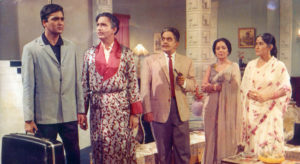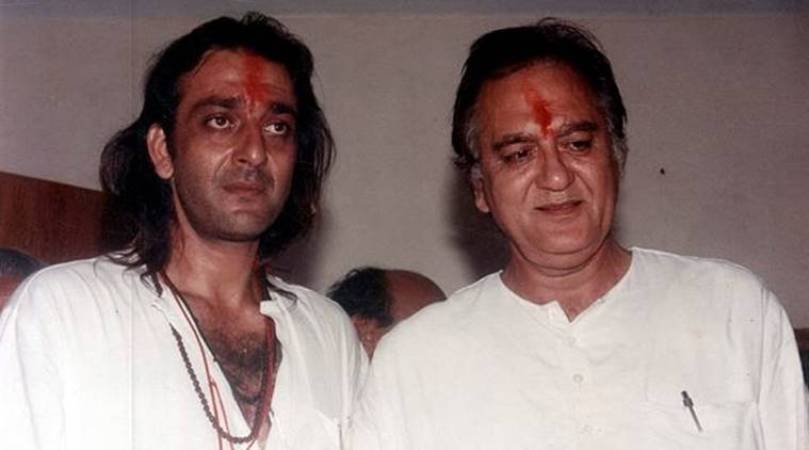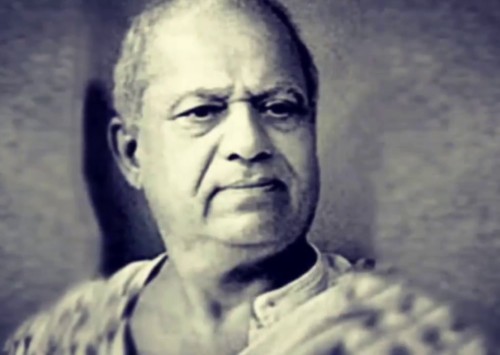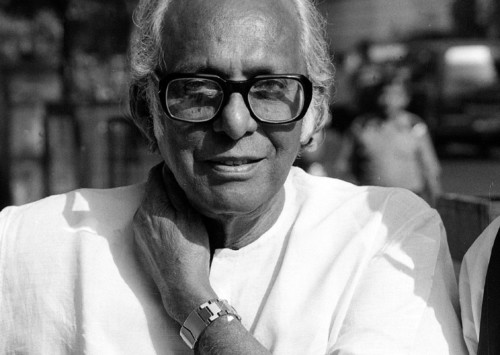Flipping pages from the life of Sunil Dutt

Sunil Dutt was not only a method actor, a dedicated politician, a motivated philanthropist and a true patriot, but also a man with a heart of gold
Sunil Dutt was not only an award-winning actor but also one of the most dedicated politicians and social activists of post-independence India. On his 90th birth anniversary, an insight into the story of the man who won millions of hearts with his honesty, perseverance, hard work and simplicity.
While partition resulted in the migration of millions across the border, one of the young boys hailing from the Khurd Jhelum region of Punjab, now a part of Pakistan, has a story of his own. Saved by a Muslim fellow, and raised by a single mother, he did not hesitate to work at a bus terminal along with completing his studies in Mumbai’s Jai Hind College, for supporting his family. Soon, the boy carved a niche for himself as a radio presenter and a chance interview landed him in the film industry.
Once he tasted the wine of success, destiny had something else in store for him. A beloved superstar, he reached the nadir of his career, went bankrupt, fought the odds and re-emerged as one of the most successful actors. Yet another challenge shook him when his only son resorted to drugs to cope with the death of his mother and the pressure of standing up to the expectation of being the son of one of the most successful and disciplined men.
The protagonist of this story not only helped him overcome this addiction but catapulted him to the silver screen again. While he wore patriotism on his sleeves and decided to serve his country, his fate took yet another turn, and he got labelled as a deshdrohi (traitor). The world held its breath, as he strived to prove his innocence- No, this isn’t an intricate plot for a drama film or a fictional novel full of twists and turns, this is the story of India’s beloved gem, Sunil Dutt – a man of principles, a man of excellence.
Dutt’s entire life was no less than a roller coaster. Be it facing the abyss of partition, his only son being put behind the bars for heinous charges, bankruptcy after a period of immense stardom or losing his beloved wife to cancer, Dutt always knew how to fight the odds, compose himself and stand on his feet again.
A method actor with a thing for perfection
Sunil Dutt was once interviewing the legendary actor Dilip Kumar and the director Ramesh Saigal for their upcoming film Shaheed (1948), on his radio show, which was already a hit with the audiences. It was then that Saigal, impressed by Dutt’s versatility, asked him to try his luck in films. Dutt, with the dose of confidence that he always carried, agreed to accept the offer on the condition of being cast in the lead role. And thus, a chance conversation in Mumbai’s Ceylon studio, introduced to the Indian cinema, in Saigal’s Railway Platform (1955), a method actor who went on to become one of the most successful actors.
The film was well received by the audiences. However, it was Mehboob Khan’s 1957 film Mother India, the most successful film of the decade, that catapulted Dutt to stardom.
“Mehboob Khan was a very successful and reputed director in the industry. When he called me, I was ready to play any role he offered. I couldn’t be more awestruck. He had initially offered me a different role in Mother India. However, when he asked me if I would like to play the role of Birju, one of the main protagonists, I left no stone unturned to assure him that I can play the role of a struggling villager. I went back home, brought my barber to his place and asked him to cut my hair whichever way he imagines Birju to be. Khan had his worries about my fair complexion and so, I went upstairs, searched for everything black and put it over my face, even some dirt. Khan was not only impressed by my dedication, but he could see the Birju in me, the one that he had visualised, and thus, I bagged the role,” Dutt once said in an interview.
It was during a fierce fire on the sets of this film, from which Dutt saved the fellow actor Nargis when the romance between the two is believed to have begun. However, Dutt claims that the helpful nature and generosity of the timeless beauty is what attracted him towards her the most. The two tied the knot privately and declared their love for each other in front of the world, a year later.
Dutt delivered several super-hit films after Mother India, including Sadhana (1958) and Sujata (1959).
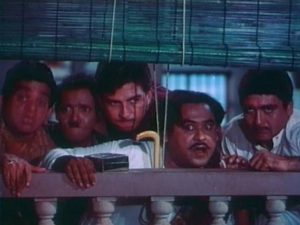
Songs like ‘‘Ek Chatur Nar” and “ Mere Samne Wali Khidki Mein” from his 1967 film Padosan are enjoyed till date in India
He reached a new milestone after directing and acting in the world’s first feature film to star only one single actor, Yaadein (1964). Though the film didn’t perform well on the box office, it made it to the Guinness Book of World Records under the category – Fewest actors in a narrative film’.
Dutt always had a knack for perfection, so much so, that it cost him his bank balance, luxury and a successful career. The 1971 film Reshma and Shera, was originally directed by Sukhdev. However, dissatisfied by the direction, Dutt decided to re-shoot the entire film, a decision that landed him in debt of INR 6 million (then USD 850,000).
“I was bankrupt. I used to have seven cars; I had to sell them all. I started travelling in buses. I was mocked and humiliated, even by gatekeepers and bus conductors. My house was mortgaged. Producers stopped financing my films. I started getting offers from B grade directors and I declined them all, for I refused to compromise with my morals,” Dutt had later recounted in an interview.
As the luck would have it, Dutt’s acting career entered its second innings with the super hit films like Pran Jaye Par Vachan Na Jaye (1974) and Hira (1973). He was back in the game.
Dutt Saab, as he was called in the industry, was known for experimenting with his roles and carrying diverse characters with equal excellence. His versatility is reflected in the contrasting roles that he played, like a comic role in Padosan (1967) or an intense one in Yadein (1964).
Dutt’s last film was Raju Hirani’s Lage Raho Munna Bhai (2003) in which he acted along with his son, Sanjay Dutt who was facing legal proceedings at that time for having an alleged role in the 1993 Mumbai blasts and illegal possession of AK-47.
A parliamentarian with a heart of gold
It was in 1984, that this legendary actor decided to trail a political route by joining the Indian National Congress. His election campaign was one of a kind. Dutt’s campaign proceeded on the lines of secularism and his reputation as a man of principles and dedication carried the day with the voters of the part of Mumbai where he stayed. The entire film fraternity including notable actors of that time including Randhir Kapoor, Rishi Kapoor and Jackie Shroff took to streets to voice and support his campaign. Dutt won the election easily. A strong supporter of peace and harmony, he never hesitated to voice his opinion on the same. In 1987, when the entire nation was engulfed in the gloom of communal riots after the then Prime Minister Indira Gandhi was shot and the Khalistan movement gained momentum, Dutt decided to stand for peace and organised “Mahashanti Padyatra’” ( peace walk) wherein he covered a distance of 2,000 km on foot along with his daughters and 80 other individuals. The march trailed from Mumbai to Amritsar in Punjab.
The following year, Dutt organised yet another peace-walk from Nagasaki to Hiroshima, spending 45 days in Japan as India’s ambassador of peace. By 1990, he was walking all over Bhagalpur city following the widespread riots until he left for yet another padyatra from Faizabad to Ayodhya.
When the wave of communal carnage took over Mumbai in the form of riots followed by serial bomb blasts in 1993, Dutt, saddened by his inability to render safety to the citizens, resigned as a Parliamentarian. Soon afterwards, his world was rocked again when his only son Sanjay Dutt was arrested on terror charges for possession of an AK-47 assault rifle, beginning a traumatic trial that ended with son sentenced to five years in jail.
Even before assuming his roles in the parliament, Dutt had involved himself in a lot of social work. During the 1962 and 1971 wars, he started the Ajanta Art Trust, a troupe which travelled from Ladakh to Chittagong, entertaining the armed forces. “The nation has always been my priority. I have always tried to give back to my country as much as I can. I have never hesitated to extend help even in the time of wars, be it 1962, 1965 or 1971. I once even took Lata Ji (a famous Indian singer) to Bangladesh for a peace troupe.”
Dutt had contributed significantly to cancer patients as well. After he lost his wife, Nargis Dutt, to cancer, he decided to extend help to other cancer patients and laid the foundation of Nargis Dutt Cancer Foundation. “Nargis Ji once asked me why have you brought me for a treatment abroad, when so many of our fellow Indians are unable to afford this treatment and succumb to this deadly disease. It has been rightly said; through our pain, we realise the pain of others.”
Sunil Dutt besides being a method actor, a dedicated politician, a motivated philanthropist, a helpless father, a true patriot and a man of principles, was, for sure, a man with a golden heart. India will never get over the loss of this gem who passed away in 2005.

